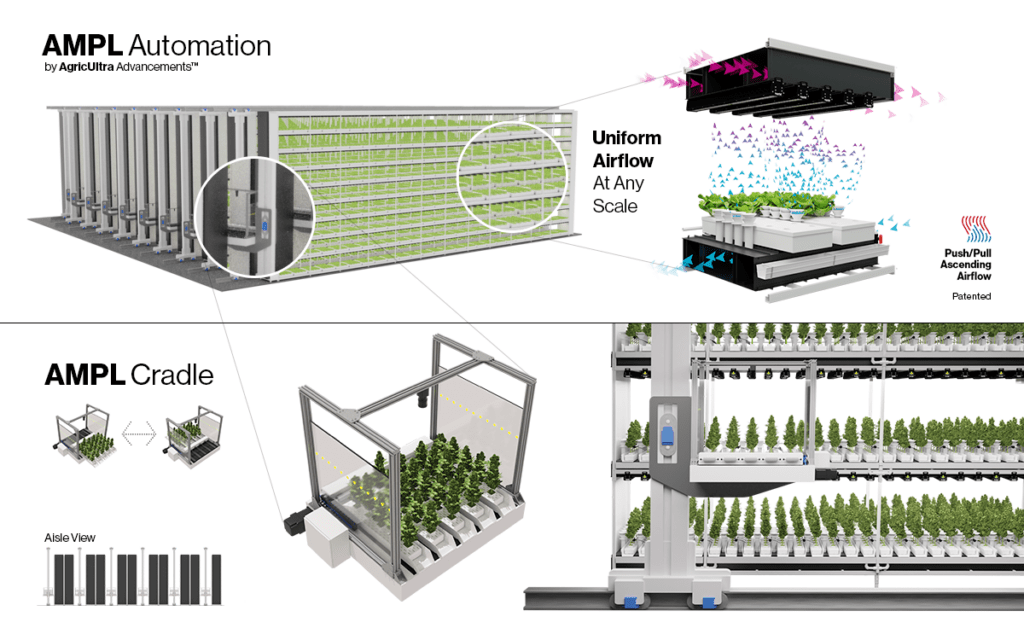
Challenge: Making indoor agriculture smarter and less labour-intensive Solution: Building and testing a fully automated, high-speed plant management prototype Impact: Greener, more efficient controlled environment farming
Indoor agriculture or controlled environment farming is growing in popularity as growers and food businesses are looking for reliable, nutritious food sources that aren’t affected by weather extremes and changing climate patterns.
Ontario-based AgricUltra Advancements has developed a turn-key solution for vertical farming: a self-contained unit controlling every aspect of production from water and nutrients to heat, humidity and run-off, right down to ensuring air is distributed equally throughout the plant canopy.
According to AgricUltra’s president and co-founder Emil Breza, the company’s approach is modular, scalable and can support new, high-speed technologies to make controlled environment farming easier and more worker friendly.
“We’ve always felt traditional methods of growing in a controlled environment are labour-intensive and backbreaking for workers,” Breza explains, adding a game-changing solution would be to automate the movement of grow trays in and out of the growing unit, so workers don’t have to manually handle when tending to plants.
The inspiration for this solution comes from crane systems used in high-speed, automated warehouses around the world. Through the Greenhouse Technology Network (GTN), AgricUltra has teamed up with Vineland Research and Innovation Centre (Vineland) to develop a prototype cradle that brings this technology to indoor vertical farming.
According to Breza, in addition to being fully automated, the Vineland-built prototype also provides full data collection on every aspect of the plant’s life and automated feedback so growers can carefully optimize production to grow the best possible crops.
“With this system, we are taking indoor agriculture to a whole new level. We can literally measure a plant’s growth rate day-by-day and with an ultra high-resolution camera installed in the cradle, we’ll have access to biometric markers you wouldn’t otherwise see,” he says.
That level of insight lets growers identify – and treat – problems virtually almost before they occur. As well, the precision technology in the cradle enables spot spraying specific problem areas instead of spraying the entire crop inside the unit.
AgricUltra is also integrating its UV application technology to the prototype, not just for sterilizing surfaces and easy postharvest cleaning, but to treat harvest-ready crops and create new market opportunities for growers. For example, research has shown applying UV to strawberries can extend shelf life, leading to less food waste.
“For us, the IP with this project is developing the cradle where you can process extra data and create intelligence for customized horticultural recipes focused on temperature, humidity, lighting, air distribution and nutrition,” Breza concludes.
Development of the prototype is nearing completion.
This project is funded by the Government of Canada through the Federal Economic Development Agency for Southern Ontario.
Visit Vineland Research and Innovation Centre to learn more about its resources and capabilities.






